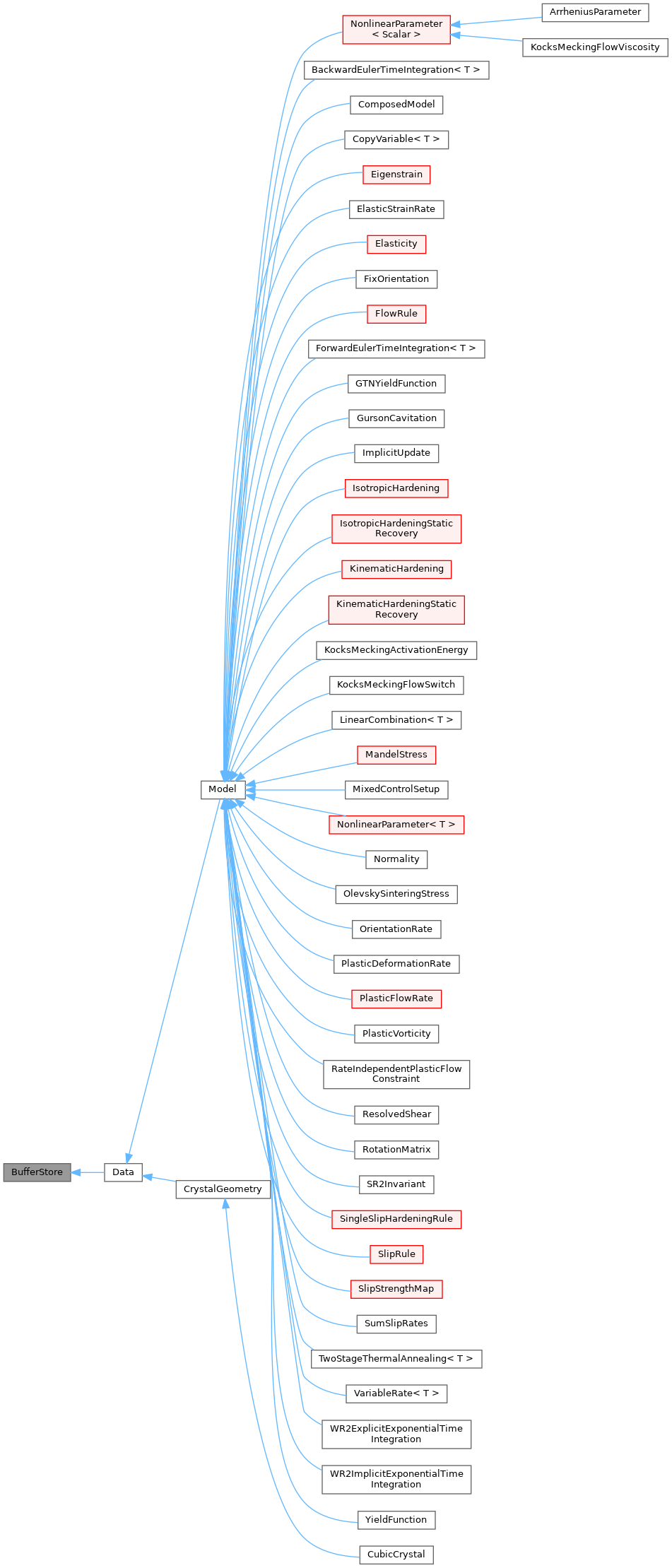Interface for object which can store buffers. More...
Detailed Description
Interface for object which can store buffers.
#include <BufferStore.h>

Public Member Functions | |
| BufferStore (const OptionSet &options, NEML2Object *object) | |
| const Storage< std::string, TensorValueBase > & | named_buffers () const |
| Storage< std::string, TensorValueBase > & | named_buffers () |
| template<typename T , typename = typename std::enable_if_t<std::is_base_of_v<TensorBase<T>, T>>> | |
| TensorValue< T > & | get_buffer (const std::string &name) |
| }@ | |
| virtual void | send_buffers_to (const torch::TensorOptions &options) |
Send all buffers to options. | |
| template<typename T , typename = typename std::enable_if_t<std::is_base_of_v<TensorBase<T>, T>>> | |
| const T & | declare_buffer (const std::string &name, const T &rawval) |
| Declare a buffer. | |
| template<typename T , typename = typename std::enable_if_t<std::is_base_of_v<TensorBase<T>, T>>> | |
| const T & | declare_buffer (const std::string &name, const std::string &input_option_name) |
| Declare a buffer. | |
Constructor & Destructor Documentation
◆ BufferStore()
| BufferStore | ( | const OptionSet & | options, |
| NEML2Object * | object ) |
Member Function Documentation
◆ declare_buffer() [1/2]
|
protected |
Declare a buffer.
Note that all buffers are stored in the host (the object exposed to users). An object may be used multiple times in the host, and the same buffer may be declared multiple times. That is allowed, but only the first call to declare_buffer constructs the buffer value, and subsequent calls only returns a reference to the existing buffer.
- Template Parameters
-
T Buffer type. See Statically shaped tensors for supported types.
- Parameters
-
name Buffer name input_option_name Name of the input option that defines the value of the model buffer.
- Returns
- T Reference to buffer
◆ declare_buffer() [2/2]
Declare a buffer.
Note that all buffers are stored in the host (the object exposed to users). An object may be used multiple times in the host, and the same buffer may be declared multiple times. That is allowed, but only the first call to declare_buffer constructs the buffer value, and subsequent calls only returns a reference to the existing buffer.
- Template Parameters
-
T Buffer type. See Statically shaped tensors for supported types.
- Parameters
-
name Buffer name rawval Buffer value
- Returns
- Reference to buffer
◆ get_buffer()
| TensorValue< T > & get_buffer | ( | const std::string & | name | ) |
}@
Get a writable reference of a buffer
◆ named_buffers() [1/2]
| Storage< std::string, TensorValueBase > & named_buffers | ( | ) |
◆ named_buffers() [2/2]
|
inline |
- Returns
- the buffer storage